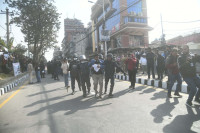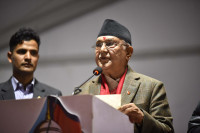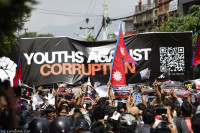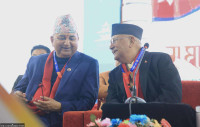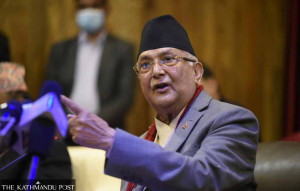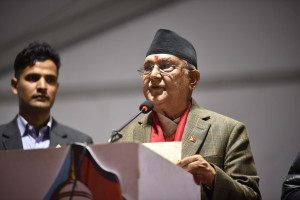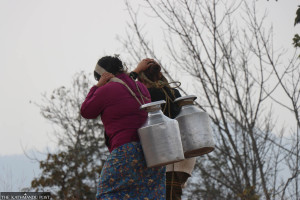Editorial
Bitter pills
If politicians had to use public hospitals, they would make efforts to improve them
Health Minister Gagan Thapa identified a critical problem when he recently called on influential political leaders and other eminent personalities to seek medical treatment at home rather than going abroad. Medical junkets are a tendency that should be curbed to a significant extent, as they lead to negative ramifications on public health institutions within the country.
In Nepal, politicians regularly travel to India, Singapore, Thailand, or further abroad to receive treatment for the most minor ailments. And it is not only politicians in power; many others who are retired from politics expect to receive funding from the state for treatment. This phenomenon has become so common that politicians regularly treat it as one of the perks of power.
The first problem with this state of affairs is that it poses an unwarranted drain on the state exchequer. If one were to tabulate the total amount of money that has been spent on the medical expenses of politicians in other countries, it would quite likely add up to a sum that would be a substantial portion of our health budget.
Second, providing state funding for politicians while most of the country is devoid of even basic health care and facilities is extremely poor political symbolism. It sends the message that there is a tiered class system within the country, which has the sanction of the state. It is understandable if people in power, say the prime minister, receive treatment from state funds, when the condition cannot be well attended within the country.
It is something quite different altogether for a long retired politician to receive the same. Such phenomenon gives the impression that the Nepali state is in the hands of a small oligarchy that is able to use state funds for private purposes, much as kings and prime ministers did under the Rana and Panchayat regimes.
Most importantly, however, the tendency for politicians to seek treatment abroad leads them to pay less attention to what is happening within the country. If they and their families fly out of the country to receive treatment for even minor ailments, this means that they will have no understanding at all about the problems of the health sector within Nepal. Even if they are briefed by advisors on problems, they will not really have an incentive to try and improve the state of affairs within the country. If politicians were forced to make use of public hospitals and other health facilities, they would be sure to make efforts to improve services when they are in power.
This phenomenon is not restricted to the medical sector alone. Similar problems can be found in many other areas. For example, the political class neglects public education since everyone they know attends private schools or is educated abroad. If Nepal’s public services are to get better, it is essential that people in power have a direct incentive to improve them.




 8.12°C Kathmandu
8.12°C Kathmandu